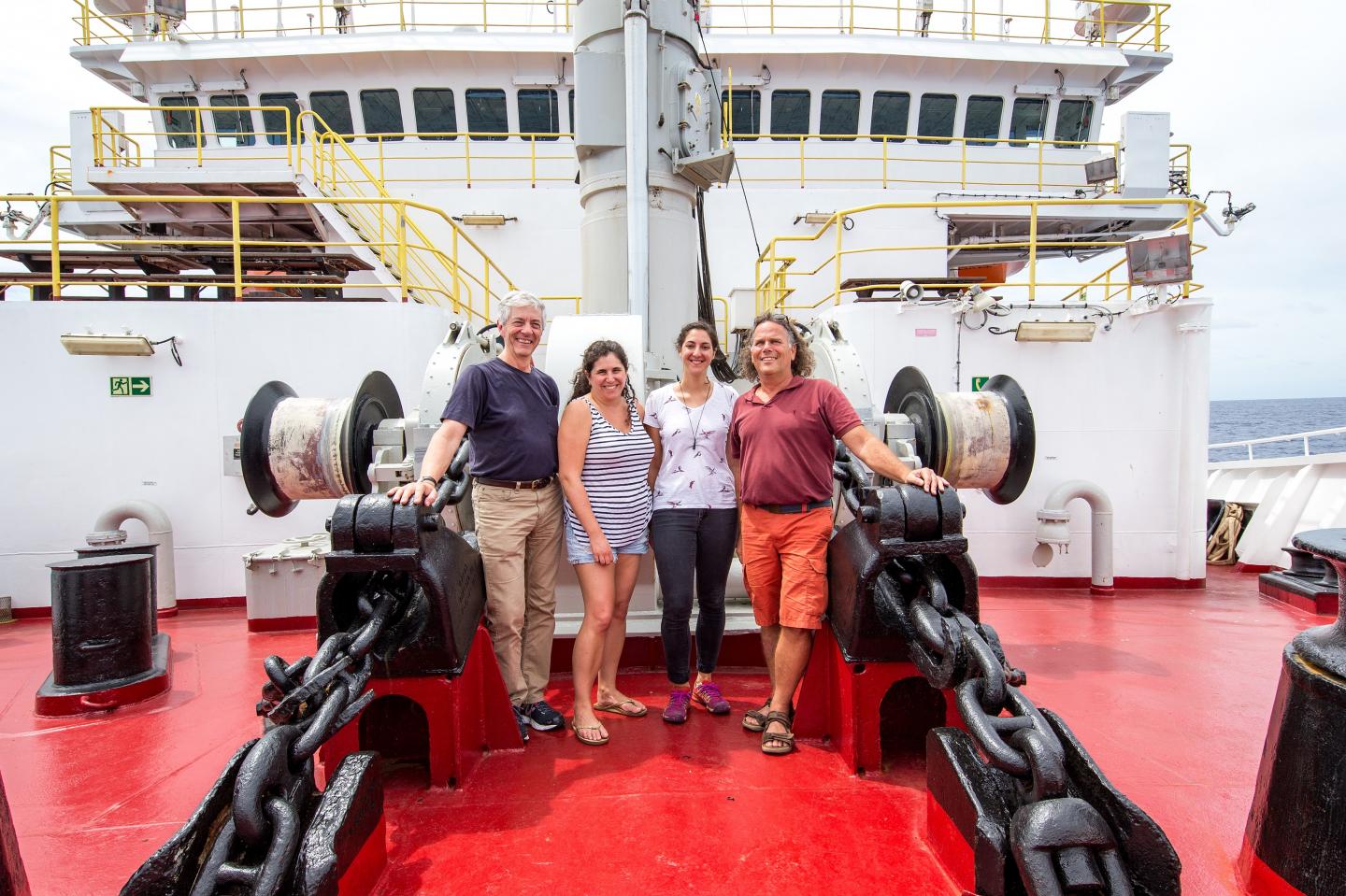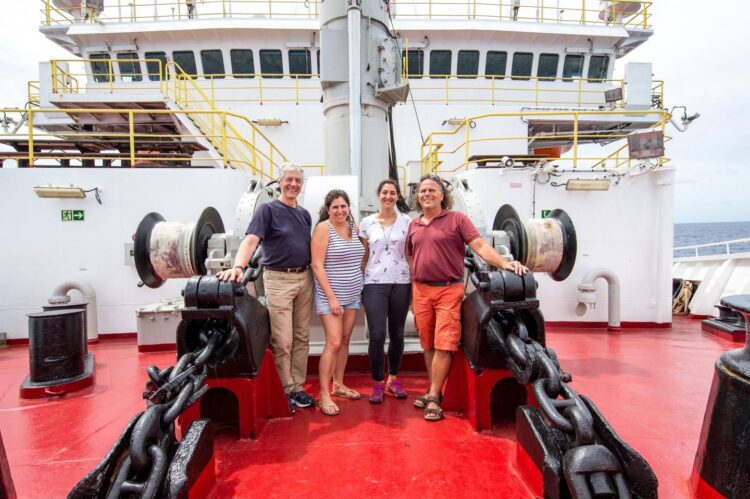Revised Holocene temperature record affirms role of greenhouse gases in recent millennia

Credit: IODP-JRSO
Scientists have resolved a key climate change mystery, showing that the annual global temperature today is the warmest of the past 10,000 years – contrary to recent research, according to a Rutgers-led study in the journal Nature.
The long-standing mystery is called the “Holocene temperature conundrum,” with some skeptics contending that climate model predictions of future warming must be wrong. The scientists say their findings will challenge long-held views on the temperature history in the Holocene era, which began about 12,000 years ago.
“Our reconstruction shows that the first half of the Holocene was colder than in industrial times due to the cooling effects of remnant ice sheets from the previous glacial period – contrary to previous reconstructions of global temperatures,” said lead author Samantha Bova, a postdoctoral researcher associate in the lab of co-author Yair Rosenthal, a Distinguished Professor in the Department of Marine and Coastal Sciences and Department of Earth and Planetary Sciences at Rutgers University-New Brunswick. “The late Holocene warming was indeed caused by the increase in greenhouse gases, as predicted by climate models, and that eliminates any doubts about the key role of carbon dioxide in global warming.”
Scientists used marine calcareous (calcium carbonate-containing) fossils from foraminifers – single-celled organisms that live at the ocean surface – to reconstruct the temperature histories of the two most recent warm intervals on Earth. They are the Last Interglacial period from 128,000 to 115,000 years ago and the Holocene. To get the fossils, the scientists collected a core of bottom sediments near the mouth of the Sepik River off northern Papua New Guinea during the Rutgers-led Expedition 363 of the International Ocean Discovery Program. The core features rapidly accumulating sediments that allowed the scientists to recreate the temperature history of the western Pacific warm pool, which closely tracks changes in global temperatures.
How temperature evolved during the Last Interglacial and Holocene eras is controversial. Some data suggest that the average annual global temperature during modern times does not exceed the warmth in the Holocene’s early warm period, called the “Holocene thermal maximum,” which was followed by global cooling. Meanwhile, climate models strongly suggest that global temperatures have risen throughout the past 10,000 years.
“The apparent discrepancy between climate models and data has cast doubts among skeptics about the role of greenhouse gases in climate change during the Holocene and possibly in the future,” Rosenthal said. “We found that post-industrial warming has indeed accelerated the long and steady trend of warming throughout the past 10,000 years. Our study also underscores the importance of seasonal changes, specifically Northern Hemisphere summers, in driving many climate systems. Our method can, for the first time, use seasonal temperatures to come up with annual averages.”
###
Rutgers-affiliated co-authors include Shital P. Godad, a former Rutgers researcher now at National Taiwan University. Scientists at The Ohio State University and Nanjing Normal University contributed to the study.
Media Contact
Todd Bates
[email protected]
Original Source
https:/
Related Journal Article
http://dx.





